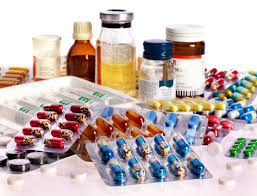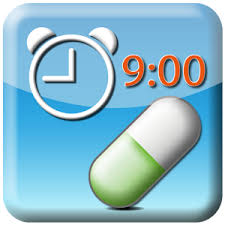
Chances are, if you have cancer or are a cancer survivor, you are taking more than one oral medication. You may be taking pain medications, anxiety or depression medications, anti nausea medications, vitamins/supplements; not to mention medications you may need to manage other health issues like high blood pressure, diabetes or high cholesterol. With all of these medications, it can be easy to miss a dose here and there.
Now add the oral anti cancer medications. Roughly 25-35% of all cancer drugs in the development pipeline are oral medications. This represents a huge shift in how and where we administer cancer treatment; from the hospital inpatient or outpatient setting which is monitored if not directly delivered by healthcare professionals, to the home where patients are responsible for taking their medications and managing their side effects.
These oral chemotherapy regimens can be complicated and require strict adherence. The World Health Organization defines adherence as “the extent to which a person’s behavior [in] taking medication…corresponds with agreed recommendations. Missing or skipping doses, not filling prescriptions due to cost, or taking more or less of the prescribed medication can all impact how well the medication works.”
Enter your mobile phone. Yes, that’s right, “there’s an app” to help you manage your medications and be adherent to your dosing schedule. A recent study found there were 272 medication or pill reminder or tracker apps. Of these, 152 were available only for android platforms, 87 were available only to iTunes and 33 were available for both platforms. Only 109 of the 272 apps are available for free. It’s important to remember that not all paid apps are necessarily better than free apps. (http://www.imedicalapps.com/2017/01/study-best-medication-adherence-medical-apps/).
If you are like me, your phone is with you pretty much all the time. Using your phone to remind yourself of when to take your medications can be extremely helpful. However, using these apps does require a fair amount of leg work on the part of the user. You need to enter in your medications, doses and time you are taking them. Most apps have a database of medications and associated typical doses which can help speed up the data entry piece. Once your medications are entered, you can set up reminders to take your medications on their set doing schedule. This is where the apps start to differ in their functionality.

Over the past few weeks, I’ve tested several of these apps. These are my reviews; please note they do not constitute an endorsement or recommendation nor was I provided any incentive to include these apps in this blog. I encourage you to try several apps to see what works best for you.
Medisafe (available for Apple and Android devices)
Things I liked:
- Free for basic app; upgrade with to premium for $4.99 per month/$39.99 per year.
- Generates a report of missed and taken doses you can send via email directly to your provider
- Allows you to add 1 additional family member and track that person’s meds (unlimited additional family members are included in the premium version
- Includes “Medfriends;” people you select to receive alerts via text or email if you forget to take a dose of your medication
- Last updated March 2017; data base includes almost all oral cancer drugs currently FDA approved (this can speed up manual entry of medications/doses)
- Available in multiple languages
- Also include diary, appointment record and ability to list healthcare providers
- Can also interface with Apple watch
- Registration not required
Limitations
- Entry of medications into the app can take a lot of time, especially if you are taking a lot of medications or have neuropathy or visual impairments that may make this challenging
- High price for premium product
- Can be difficult to customize dose timing
Carezone (available for iPhone and Android)
Things I liked:
- Ability to take photos of your medication bottles which automatically inputs medication and dosing information into your virtual pillbox within the app
- Also allows you to type in medication information
- Includes trackers for blood sugar, blood pressure, pain, temperature and other vital signs (all manually entered)
- Built in calendar, journal and notes
- Free
- Offers a pharmacy service (Carezone Pharmacy Services) enabling free home delivered medications; this service is also available with many Medicare Part D plans
- Allows printing/sharing of medication list
- Can also interface with Apple watch
Limitations:
- Last updated March 2017 but Medication database is out of date; doesn’t include any oral cancer medications. If you are manually entering your medications, this can mean extra work
- Registration is required; App sends emails announcing additional products/services available as well as health education information
- Only available in English
Mango Health (available for iPhone and Android)
Things I liked:
- Encourages you to earn points by being adherent to your medications; point unlock a chance to win rewards including gift cards or donation to leading charities
- Medications must be entered manually
- Include drug interaction warnings based on the medications you have entered into your profile
- Registration is not required but is encouraged
- Last updated March 2017; update includes recently approved oral cancer medications
- Can also interface with Apple watch
Limitations:
- Only available in English
- No ability to export or share medication adherence reports
There are many more apps available on both Apple and Android platforms to help you manage your medications. It’s important to try multiple apps and see which one works best for your needs and abilities. Using something that is with you all the time (your phone) can be very helpful in improving your medication adherence. Have you tried any of these apps or others? What has your experience been? Has this improved your adherence? What might you do differently?